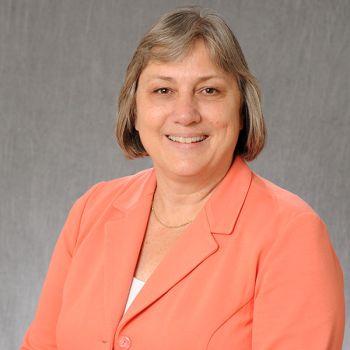
WASHINGTON (Aug. 8, 2019) — The George Washington University (GW) School of Medicine and Health Sciences (SMHS) is pleased to announce a new Doctor of Health Sciences Program in Leadership in Clinical Practice and Education. The program will be housed within the Department of Health, Human Function, and Rehabilitation Sciences.
“We designed the program to enhance competencies and leadership skills in both education and clinical practice,” said Joyce Maring, EdD, DPT, program director and chair and associate professor in the Department of Health, Human Function, and Rehabilitation Sciences at SMHS. “This program addresses the complexity of the current practice environment, as well as the need for increased credentialing of health care educators.”
Students graduating from the program will earn a DHSc degree in Leadership in Clinical Practice and Education. They are expected to complete 48-credit hours through the part-time, distance program, which will culminate in the completion of a publication-ready manuscript. The first class will matriculate in spring 2020, with applicants being accepted twice per year.
The Doctor of Health Sciences Program in Leadership in Clinical Practice and Education prepares clinical health professionals from a range of practice areas who seek to build competencies in advanced professional leadership, whether that be in the clinical or academic environment. Careers in health education or clinical management often require advanced skills and credentialing in order to meet the expectations associated with leadership positions. Based on desired career outcomes, students can concentrate in enhancing skills related to advancing clinical practice in leadership positions or concentrate in emphasizing skills related to providing education for health professional students, as well as leadership for health professional education in a higher education setting.
Students in the program will advance their expertise in:
- designing, implementing, and evaluating programs in health care;
- leading interprofessional teams; and,
- analyzing and applying evidence to advance the practice of healthcare.
“Health sciences doctoral students will have learning opportunities delivered in an interprofessional environment, with curricula outcomes specific to the unique demands imposed by today’s health care environment,” said Maring. “Our distance-based curriculum is designed to foster authentic learning as students apply what they learn to their current or projected professional practice environments.”
The program will formally launch in fall 2020.


